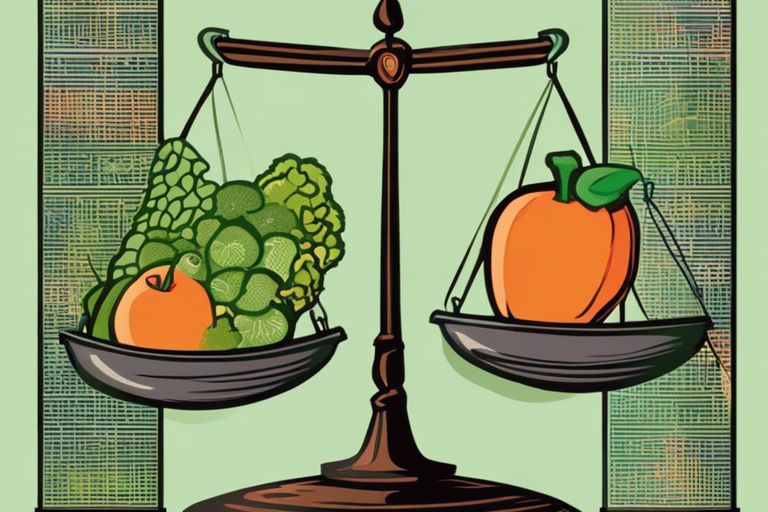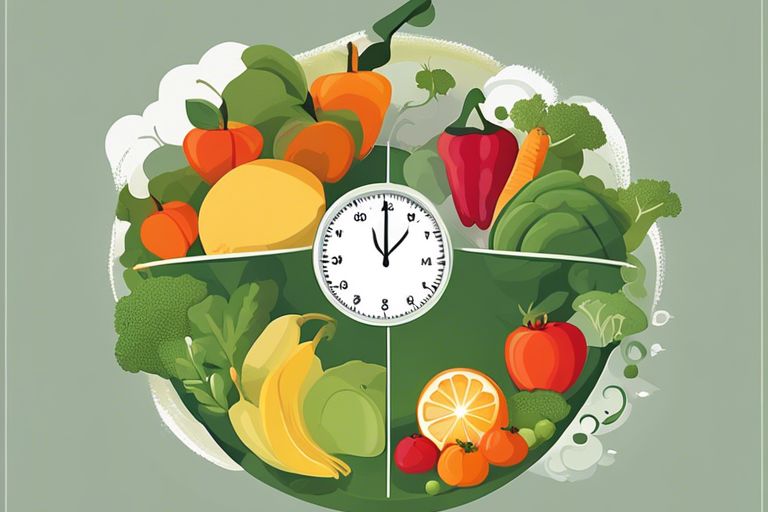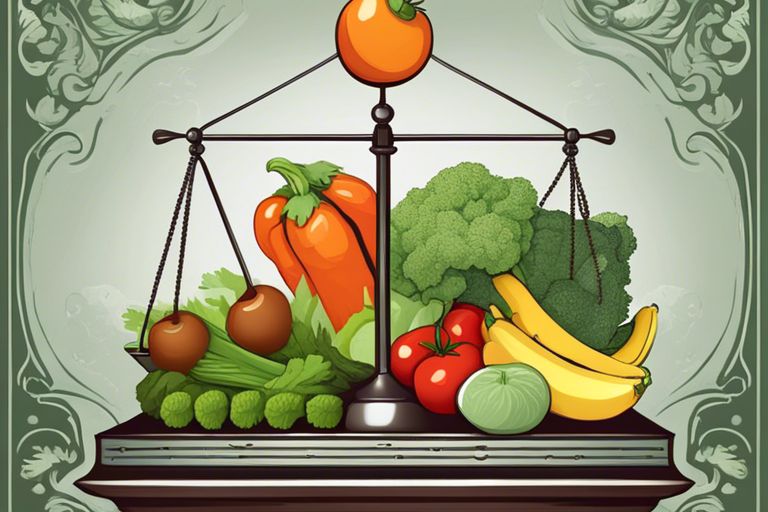There’s a plethora of information available on the topic of organic versus non-organic foods, but what are the key differences and why should you care? Organic foods are grown without synthetic pesticides, artificial fertilizers, or genetically modified organisms (GMOs), while non-organic foods may contain traces of these harmful substances. Understanding the benefits of choosing organic options, such as higher nutrient levels and lower pesticide residues, can help you make informed decisions about what you and your family consume. Let’s explore the essential facts to help you navigate the grocery store with confidence.
Key Takeaways:
- Organic farming practices prioritize environmental conservation: Organic farming practices focus on sustainability, soil health, and biodiversity, which contribute to the conservation of the environment.
- Non-organic foods may contain pesticides and chemicals: Non-organic foods are often treated with synthetic pesticides and chemicals, which can have adverse effects on human health and the environment.
- Organic foods are free from genetically modified organisms (GMOs): Organic foods are produced without the use of GMOs, offering consumers a choice to avoid these genetically modified ingredients.
Understanding Organic Food
Definition and Certification
Certification: Organic food refers to produce that is grown without the use of synthetic pesticides, fertilizers, genetically modified organisms (GMOs), or sewage sludge-based fertilizers. To be labeled as organic, food must meet certain standards set by governmental bodies and be verified by accredited certification agencies. These agencies ensure that farmers adhere to specific guidelines for organic farming practices.
One key aspect of organic food production is the certification process. This process involves rigorous inspections of farms and facilities to verify that they are following organic standards. Farmers must keep detailed records of their practices to maintain their organic certification. Consumers can look for the USDA Organic Seal to ensure that the food they are purchasing meets these standards.
Agricultural Practices and Environmental Impact
Agricultural: Organic farming practices focus on sustainable methods that promote soil health, biodiversity, and water conservation. Farmers use techniques such as crop rotation, composting, and biological pest control to maintain the health of the ecosystem. These practices not only benefit the environment by reducing pollution and preserving natural resources but also contribute to the overall health and well-being of consumers.
It is crucial to recognize the positive impact of organic agricultural practices on the environment. By avoiding the use of synthetic chemicals, organic farming helps protect pollinators, wildlife, and water sources from harmful contamination. Additionally, organic farms often sequester more carbon in the soil, which plays a role in mitigating climate change. Supporting organic agriculture can lead to a more sustainable food system that benefits both present and future generations.

Health and Nutrition
Now let’s probe into the crucial aspect of health and nutrition when it comes to choosing between organic and non-organic foods.
Nutrient Content Comparison
Content:
| Organic Foods | Non-Organic Foods |
| Higher levels of certain nutrients like antioxidants | Possible lower levels of certain nutrients due to soil depletion |
| No artificial flavors or preservatives | May contain artificial additives and preservatives |
When comparing the nutrient content between organic and non-organic foods, organic options tend to have higher levels of certain nutrients like antioxidants. Additionally, organic foods do not contain artificial flavors or preservatives, which can be beneficial for overall health. On the other hand, non-organic foods may have lower levels of certain nutrients due to soil depletion and could include artificial additives and preservatives.
Pesticides and Chemicals in Food Production
An
With ongoing debates surrounding the use of pesticides and chemicals in food production, it is essential to consider their impact on health. Organic foods are grown without synthetic pesticides and chemicals, making them a safer option for consumption. On the contrary, non-organic foods are often exposed to various chemicals during cultivation, which can potentially have adverse effects on health in the long run.
Ethical and Economic Considerations
Despite the ongoing debate surrounding organic and non-organic foods, it is crucial to examine the ethical and economic considerations associated with each. These factors play a significant role in shaping our food systems and consumption habits.
Ethical Implications of Farming Methods
Ethical considerations in farming methods involve the treatment of animals, use of pesticides, and impact on the environment. Organic farming typically prioritizes animal welfare, biodiversity, and sustainable practices. In contrast, non-organic farming may involve the use of synthetic pesticides and fertilizers that can harm ecosystems and wildlife. The choices we make in supporting certain farming methods can have profound effects on the well-being of animals, habitats, and future generations.
Ethical consumers often prioritize supporting practices that align with their values, such as avoiding factory farming and promoting sustainable agriculture. By choosing organic products, individuals can contribute to a more ethical food system that values animal welfare, environmental conservation, and social responsibility.
The Economics of Organic Food Production and Pricing
Economics plays a crucial role in understanding the production and pricing of organic foods. Organic farming methods tend to be more labor-intensive and require significant investments in sustainable practices. This can often lead to higher production costs, which are reflected in the pricing of organic products compared to non-organic alternatives.
Implications of the higher costs associated with organic food production can deter some consumers from purchasing organic products regularly. However, it is essential to recognize the long-term benefits of supporting organic agriculture, such as improved soil health, reduced pesticide exposure, and lower environmental impact. Investing in organic foods can lead to positive outcomes for both personal health and the well-being of the planet in the long run.

Consumer Perspectives and Choices
Perception of Health Benefits
After conducting various studies and surveys, it has become evident that consumers have differing perspectives on the health benefits of organic versus non-organic foods. Many individuals believe that organic foods are inherently healthier as they are grown without synthetic pesticides and fertilizers. This perception is driven by the assumption that organic foods are more nutritious and contain fewer harmful chemicals.
However, there is ongoing debate within the scientific community regarding the actual health benefits of organic foods compared to non-organic options. Some studies have shown minimal nutritional differences between the two, while others suggest that organic foods may have higher levels of certain nutrients. It is essential for consumers to evaluate the evidence and make informed choices based on their individual health needs.
Taste, Availability, and Cost
Any discussion about consumer perspectives on organic versus non-organic foods must consider factors such as taste, availability, and cost. While some consumers prefer the fresh and natural taste of organic produce, others may find non-organic options more appealing. Additionally, the availability of organic foods may vary depending on location and season, which can influence consumer choices.
It is crucial to note that organic foods are generally more expensive than their non-organic counterparts. This price difference can be a significant factor for many consumers when making purchasing decisions. While some are willing to pay a premium for perceived health benefits and environmental sustainability, others may prioritize affordability and choose non-organic options.
Summing up
Considering all points explored in the comparison between organic and non-organic foods, it is evident that both types have their benefits and drawbacks. While organic foods promote sustainable farming practices and offer potentially higher nutrient content, non-organic foods may be more accessible and affordable. It is essential for individuals to weigh their priorities and make informed decisions based on their own values and circumstances. In the pursuit of better health and environmental sustainability, understanding the differences between organic and non-organic foods is crucial. By staying informed and making conscious choices, we can contribute to a more sustainable food system and improve our overall well-being.
FAQ
Q: What are organic foods?
A: Organic foods are products of farming practices that avoid the use of synthetic pesticides, genetically modified organisms, and chemical fertilizers. They are grown using natural fertilizers like compost and manure and are typically free from artificial additives.
Q: What are non-organic foods?
A: Non-organic foods are produced using conventional farming methods that involve the use of synthetic pesticides, chemical fertilizers, and genetically modified organisms. These foods may also contain artificial additives to enhance flavor, appearance, or shelf life.
Q: What are the differences between organic and non-organic foods?
A: The main differences between organic and non-organic foods lie in their production methods and the quality of ingredients used. Organic foods are typically perceived as more environmentally friendly and healthier due to the absence of synthetic chemicals. However, non-organic foods are often more affordable and easier to find in conventional supermarkets.

